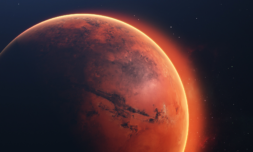New research by a British non-profit suggests that the health consequences of being in space may be more serious than originally believed.
As far as suitable environments go, space in pretty uninhabitable.
Not only does it lack oxygen, but the atmosphere is either far too hot or far too cold for humans to survive in without help from special suits and space stations. Even when provided these forms of protection, astronauts are known to return to Earth exhibiting signs of reduced health.
While stationed at the International Space Station, astronauts work on their fitness using zero-gravity weights and cardio machines in order to maintain their strength and health.
Despite their daily efforts, the most well-documented health issues that space-travellers face are weakened bones, diminished muscle size and function, decreased production of red blood cells (space anemia), eye and balance disorders, and even weakened hearts.
A new report published on October 22nd points to additional health concerns for astronauts.
Compiling a number of research projects, the Guy Foundation, a British non-profit interested in the links between physics and biology, argues that time spent in space could be more dangerous than once thought, due to its effect on mitochondria.





















